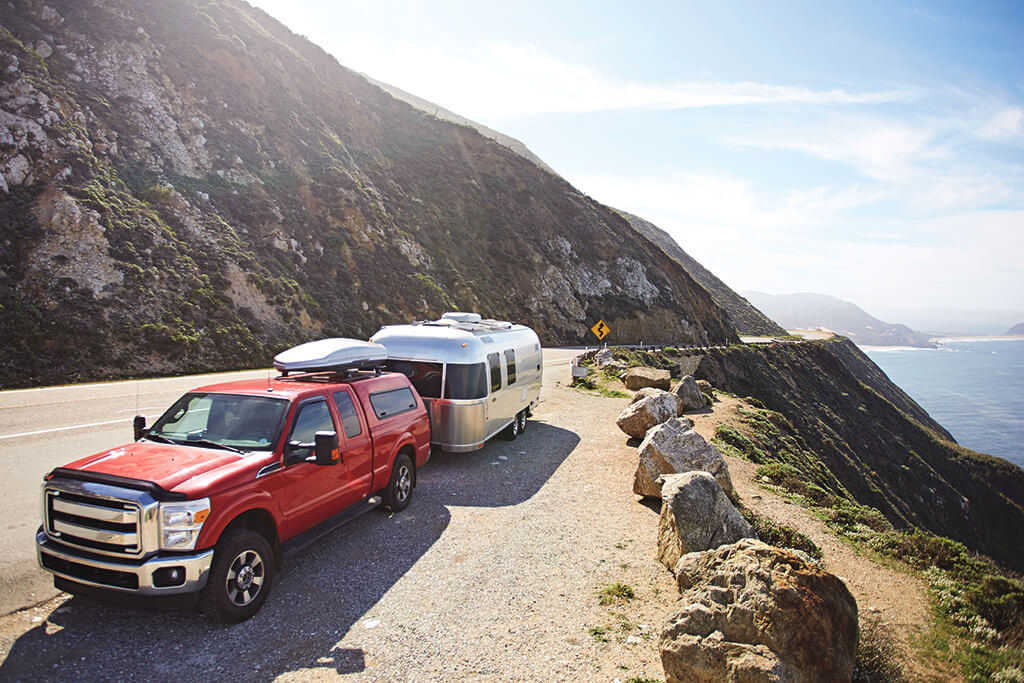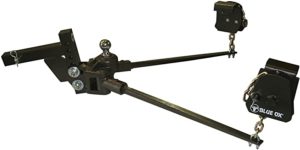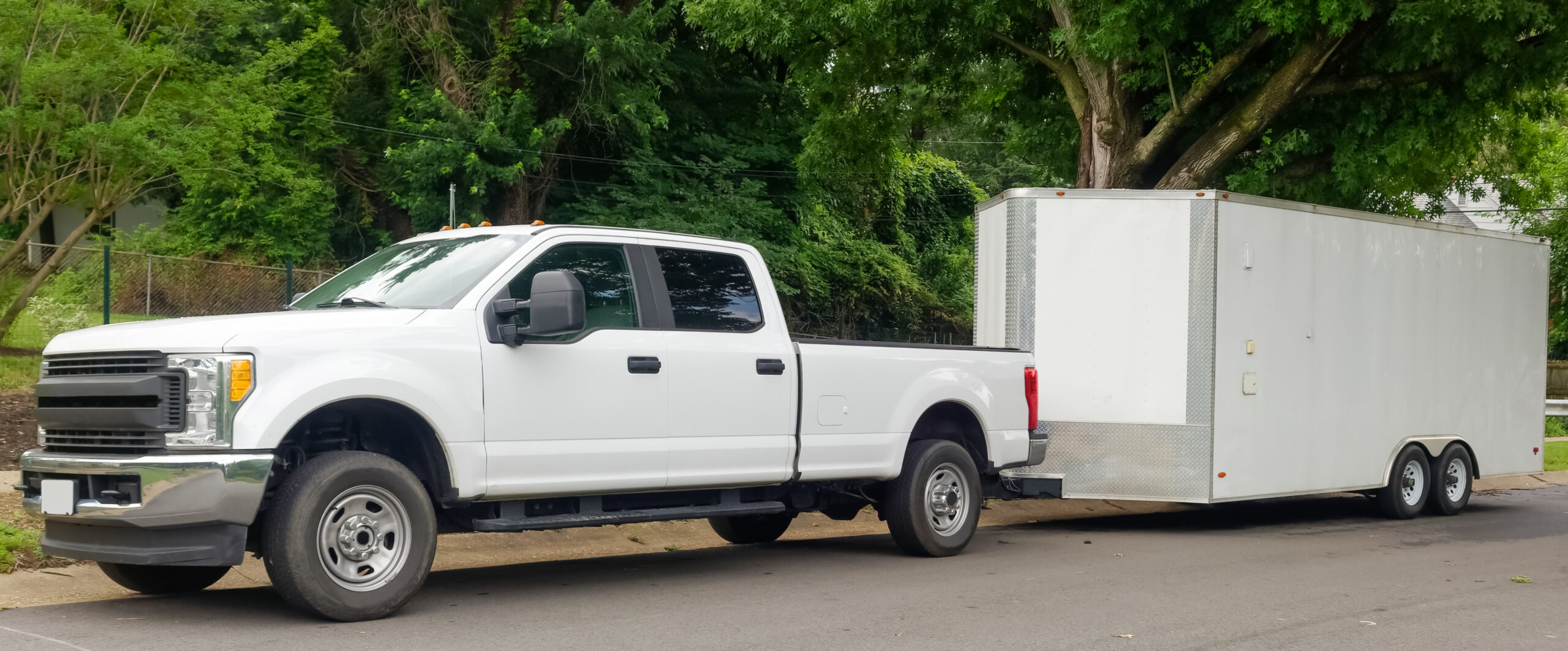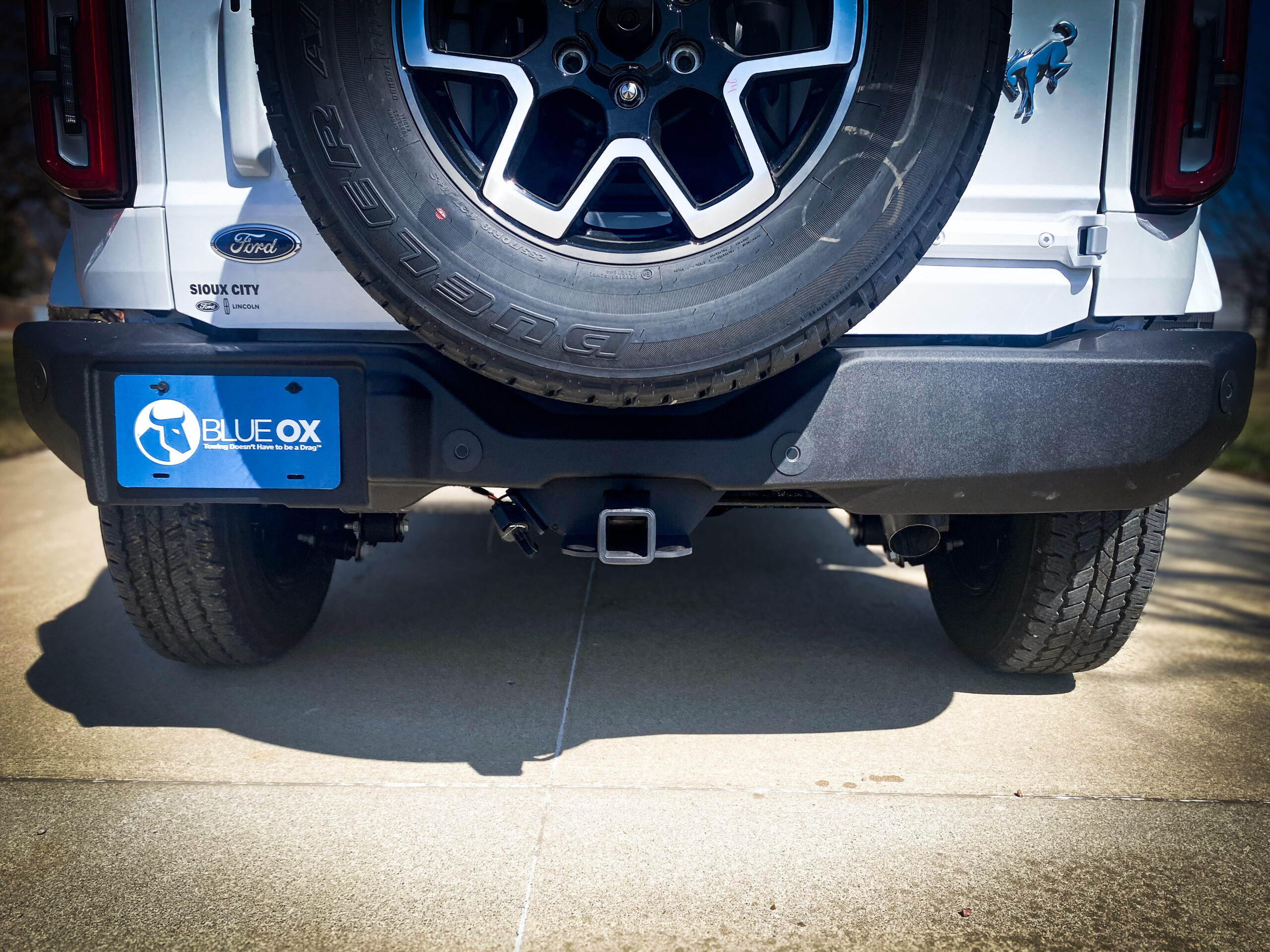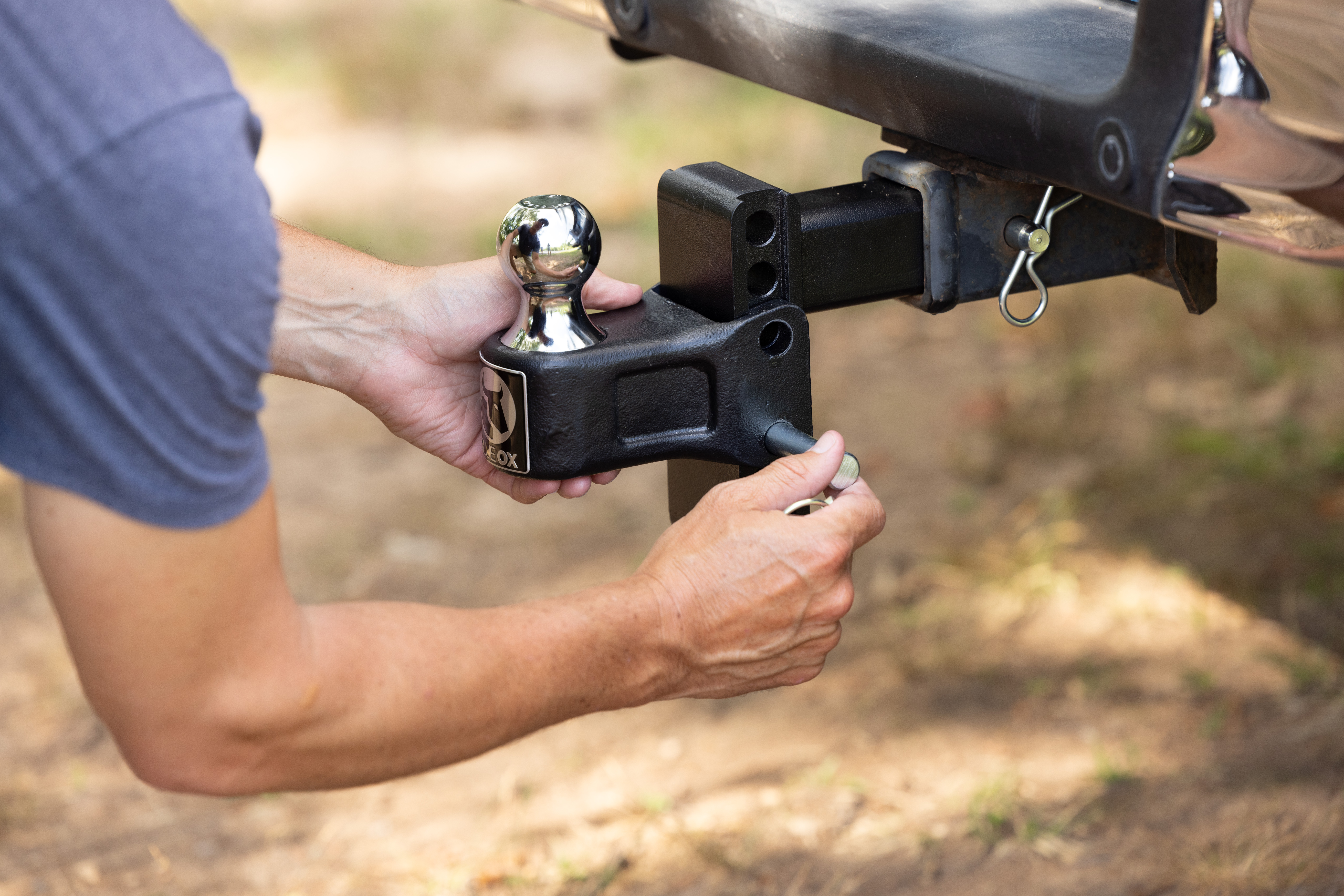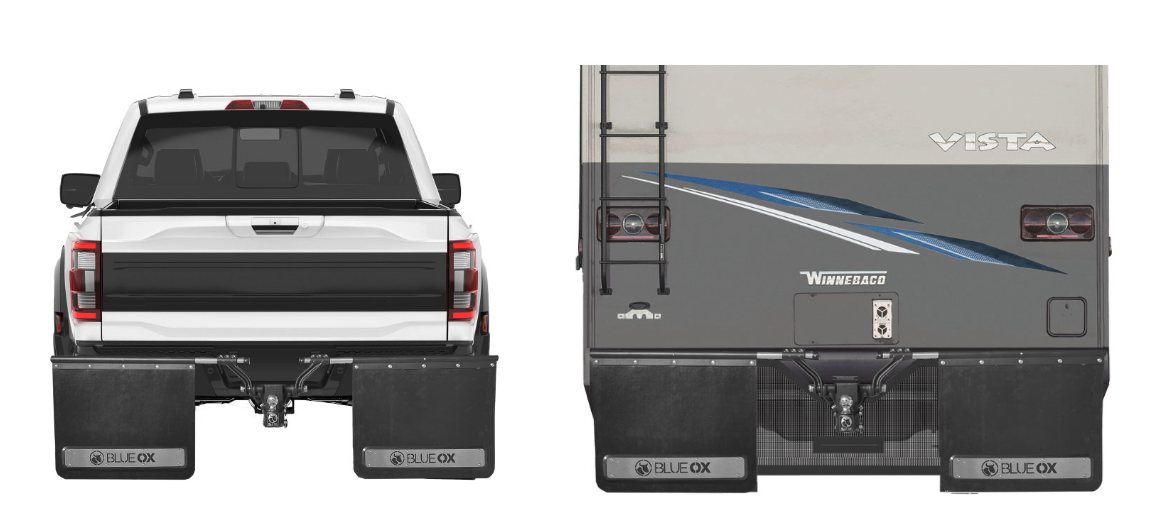No matter how much trailer towing experience you may have, any driver can experience loss of control over their trailer without warning. And if you have ever experienced that scary moment when trailer sway begins, you know it’s important to react quickly, calmly and appropriately. Trailer sway is a common cause of accidents involving trailers. Here are the steps for what to do when trailer sway starts.
- Immediately let off the gas pedal and avoid stepping on the brake pedal! Your instincts may make you want to step on the brakes immediately, but braking suddenly can make the sway worse and cause you to lose control. You should remove your foot from the accelerator so your speed reduces gradually.
- Keep the steering wheel straight. Attempting to fight the sway by turning the wheel will only worsen it and accentuate the problem.
- Let your vehicle slow down on its own.
- If you have trailer brakes, you can manually apply them gently once the speed decreases.
- In some cases, a slight increase in speed can put forward pressure on the trailer tongue and straighten it a bit. Do NOT increase speed if you are going downhill.
- Once you have regained control, pull over to a safe area and check your cargo to see if it shifted or needs to be moved around, so more weight is at the front of the trailer. About 60% of the trailer weight should be at the front. Check your ties or straps to ensure they are secure so items don’t possibly shift again.
- Once you’re back on the road, maintain a slower speed while driving. Stay about 10 mph under the rate at which you noticed the trailer sway starting.
- Get your hitch inspected to ensure it is not defective. Replace it if necessary.
- Consider upgrading your brake control system and installing a weight distribution hitch.
What Causes Trailer Sway?
There are a variety of things that can cause trailer sway to start. Some common trailer towing mistakes are avoidable, while others may not. Having a clear idea of what could be causing your trailer to sway may help you be better prepared if it happens.
Wind Gusts
The wind is the most common cause of trailer sway. A strong force pushing your trailer from one side or the other can cause it to sway from side to side. This is usually the result of strong gusts of wind or passing a high-profile vehicle, such as an 18-wheeler who is traveling at high speeds. Wind can be unpredictable, but if you know you are traveling through a windy area, plan on giving yourself some extra time to get to your destination so you can drive a bit slower.
Poor Driving Conditions
Aside from the wind, other driving conditions can cause your trailer to sway. If you are driving on uneven road surfaces, such as in a construction zone or a rural area, your trailer may begin to fishtail. Inclement weather, such as rain, ice, and snow, could also have a negative impact on the driving conditions and cause trailer sway.
Excessive Speed
Many of the tires that come on a trailer are only rated for speeds up to 65mph, but many highway speeds allow you to go 70-75mph. While it’s tempting to speed up to get where you’re going quicker, it could be the difference between arriving safely or experiencing trailer sway and potentially causing an accident. No destination is worth rushing to if it means you may not get there at all!
Excessive Tongue Weight
Excessive weight could be in the tongue weight or the weight of your trailer load. If the trailer is too heavy, it can cause the tow vehicle to squat and make the rear “squirm,” creating sway in the trailer. The tongue weight should also be around 15% of the trailer’s total weight to avoid squatting.
Improper Weight Distribution
Contrary to what some people may think, you can’t simply throw cargo onto your trailer, strap it down, and take off. You have to be more organized than that when loading up your trailer. If too much weight is in the back of the trailer, it is likely to start fishtailing when you get on the highway. While using a weight distribution hitch can help, you still need to do everything you can to create conditions that will help you avoid trailer sway in the first place.
Low Tire Pressure
The sidewalls can start to bow and compress without enough tire pressure on the trailer or tow vehicle tires. Inflating the vehicle’s rear tires to the maximum recommended pressure should keep them from becoming too compressed. Check the tire pressure at stops along your trip and add air when needed.
How To Prevent Trailer Sway
While knowing what to do when trailer sway starts is essential to keep you, your passengers, and others on the road safe, learning how to prevent it is just as crucial. Before you hit the road, you want to be sure you’ve done everything possible to avoid trailer sway.
Get Stiff Tires
If you are towing with an SUV or a passenger vehicle, it likely came with Passenger tires designed to give you a smooth ride. Switching to Light Truck tires that are stiffer and designed for heavy loads can reduce the rear end “squirm” and reduce the chances of sway.
Check Your Tongue Weight
A tongue weight that is too high or too low can increase the likelihood of trailer sway. A tongue weight scale is easy to use and may be worth the investment if you often tow or have multiple trailers in use.
Load Your Trailer Properly
A trailer that has been loaded improperly is more likely to cause trailer sway. The weight should be balanced on each side of the trailer, and about 60% of the weight should be toward the front. Once you have your items placed according to weight, pack them closely together and then tie them down so that they don’t move around as you drive down the road.
Install SwayPro
The safest and most effective way to prevent trailer sway is using SwayPro by Blue Ox. This weight distribution hitch stops trailer sway before it starts by using tension to keep its spring bars taut, and the attached brackets ensure those spring bars keep the trailer in line with the towing vehicle. It is very user-friendly and allows you to back up without disconnecting. SwayPro can help prevent sway caused by any of the reasons mentioned above.
Be Safe on the Road
Be a responsible driver and do your part to prevent the trailer sway from starting. Upgrade your towing set-up to increase your safety on the road by installing the SwayPro weight distribution hitch. SwayPro works in any weather, is easy to install, and you can back up without disconnecting. Contact Blue Ox today to discuss our SwayPro weight distribution hitch, or click here to order one today!

